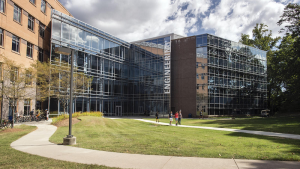The Federal Communications Commission (FCC) announced that it has committed more than $65 million in funding through the Emergency Connectivity Program (ECP) as part of its continued push to close the homework gap.
New York’s Columbia University Libraries announced that it has joined The Palace Project platform and app, in a bid to streamline the management and delivery of ebooks, audiobooks, and other e-content. The Palace Project is a nonprofit library-centered platform and e-reader app for digital content and services.
Middle and high school students in Delaware are encouraged to use geographic information system (GIS) technology to highlight facts and features unique to Delaware.
Michigan Gov. Gretchen Whitmer announced a $2 million grant to “support the growth and development of high-tech talent in Michigan.” The grant will fund projects to grow Michigan’s high-tech workforce and build talent pipelines for Michigan’s automotive, mobility, and technology sectors.
The University of Northern Iowa (UNI) is using a nearly $1 million grant to launch a program that will help Iowa teachers receive their secondary computer science education endorsement – qualifying them to teach computer science in grades five through 12.
New York’s Hartwick College has received a $500,000 grant to expand its capacity for providing Science, Technology, Engineering, and Math (STEM) opportunities for all students, particularly those belonging to historically excluded groups.
The Department of Defense (DoD) has announced awards for 147 university researchers, totaling $59 million, to finance the purchase of research equipment and enable universities to perform state-of-the-art research that augments current capabilities and develops new ones.
New Jersey Gov. Phil Murphy has signed new legislation that requires all public and nonpublic schools in New Jersey to submit critical incident mapping data to local law enforcement in electronic format.
The Federal Communications Commission (FCC) has committed nearly $84 million in a new round of funding through the Emergency Connectivity Program, which supports the FCC’s work to close the homework gap.
George Mason University is partnering with Amazon Web Services (AWS) to develop a unified platform to improve the process for students from community colleges to transfer into the university.










